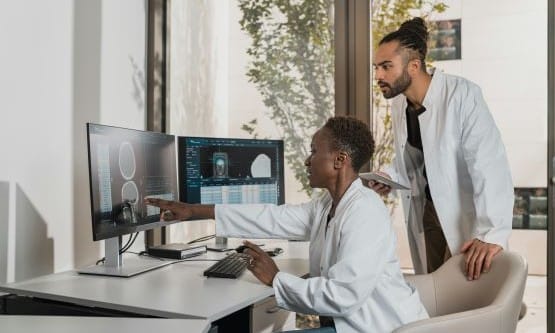Hampshire rejects SCR for HHR
- 28 April 2009
The largest primary care trust in England has decided not to implement the Summary Care Record in the next 12 months and to expand its own shared care record system instead.
The Hampshire Health Record (HHR) already covers 65% of the Hampshire population and NHS Hampshire plans to roll it out to 90% of residents by the end of March next year.
It also covers Southampton City PCT, where 80% of residents have records, and Portsmouth City PCT, where 35% of residents have records.
NHS Hampshire said the HHR contains more information than the SCR currently holds and already accepts feeds from all GP systems. It also argued that promoting both the SCR and HHR could be confusing.
However, it said it was actively looking at how patients might be able to access the HHR through the national secure health portal, HealthSpace.
In a statement issued to EHI Primary Care, Jenny Nash, chief information officer for NHS Hampshire said: “Since the HHR project began, the national NHS Summary Care Record service has started.
“Given the successes of the HHR, Hampshire’s providers and commissioners are committed to continuing the HHR project and do not plan to feed the national SCR during 2009-10. This decision will be reviewed as the SCR project develops.”
Dr Gillian Braunold, NHS Connecting for Health’s clinical director for the SCR, said she understood why Hampshire would not be first in the queue for it. She said she recognised that NHS Hampshire had invested significantly in the HHR, which she said had pioneered record sharing.
However, she told EHI Primary Care that she would be surprised if the PCT did not go ahead with it next year. She said: “It’s not for me to tell Hampshire what to do but Hampshire residents must go on holiday to other parts of the country or want to share their record in different parts of the world.
“If you have more clinically rich information available you don’t need the SCR – but if you have no information that is where the SCR becomes useful. The two are not mutually exclusive.”
Across England, Dr Braunold said PCTs were “queueing up” to implement the SCR as they saw its potential to help deliver some of the requirements of Lord Darzi’s Next Stage Review, such as end of life plans and other treatment plans.
Nash said in all approximately 65% of the Hampshire population have a shared local record and the PCTs were working with GP practices, hospitals and community teams across Hampshire to continually raise awareness and understanding of the service.
The record, accessed by out-of-hours GPs, A&E clinical staff and admissions pharmacists, is uploaded on an opt-out basis and then viewed with explicit patient consent.
Nash added: “A main benefit is the ability for clinicians working out of hours and in emergency/unplanned care to access this ‘always on’ shared record to support patient care.”
So far about 1,200 patients in Hampshire have opted out and 5,000 have asked for a copy of their information.
The HHR uploads a much wider extract of information than the initial upload for the SCR, which contains information on allergies, medications and adverse reactions.
The HHR upload, extracted from GP records and updated each night, includes Read-coded data on allergies, medical history, active and past problems, operations and referrals, repeat medication, information on alcohol, exercise, diet, smoking, blood pressure, contraception and HRT, cervical cytology and other test results.
The record also takes pathology, radiology and discharge letter feeds from acute trusts – a feature that is currently live for Southampton and Portsmouth hospital trusts – and inpatient and A&E discharges – which is currently live for Winchester.
Pathology and radiology feeds for Winchester and North Hampshire trusts are expected to be available soon.
The HHR also holds occupational therapy, community nursing, physiotherapy and podiatry records for patients in South East Hampshire and contributes to the creation of an integrated record across the community multidisciplinary teams.
The publicity campaign was run in 2005 when the record – then known as the Clinical Data Repository and Common Health Record – was set up.
This is expected to be repeated. Information will be distributed through local authority newsletters, via a new leaflet and poster sent to GP practices, and via a new website.
The project has also developed a linked anonymised database to provide strategic planning information for PCTs and practice-based commissioners.
Hampshire is also one of nine areas piloting the Common Assessment Framework for the Department of Health and the HHR is likely to be used in that project which aims to test sharing of health and social care information.



